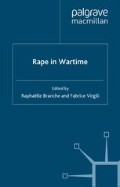Abstract
Bangladesh has undergone a double and disrupted postcolonial trajectory. In 1947, Indian independence from British colonial rule resulted in the creation of a new homeland for the Muslims of India by carving out the eastern and northwestern corners of the country as two widely separated territories, known as East and West Pakistan respectively. In the formation of Pakistan, Islam was the sole principle of nationhood unifying these two widely disparate units, separated not only geographically but also by sharp cultural and linguistic differences. Ostensibly they formed a single nation state. But it is important to remember that the Islam of Bengal, bearing the imprint of different historical and social forces, was not the Islam of Pakistan. “Orthodox” Muslims in other parts of South Asia also interpreted the practice of Islam in Bengal as too Bengali, equating it to being Hinduised (Hindus constituted a sizeable minority in East Pakistan). Moreover, real military and administrative power lay in West Pakistan and successive Pakistani regimes, reluctant to rely on religious allegiance alone, embarked on a strategy of forcible cultural assimilation towards the Bengalis of East Pakistan. Soon after Partition in 1947, the Bengali language was targeted to be replaced by Urdu as the only state language so as to purge Bengali culture of its perceived “Hindu” elements.
Access this chapter
Tax calculation will be finalised at checkout
Purchases are for personal use only
Preview
Unable to display preview. Download preview PDF.
Notes
The figure of three million dead is an upper limit (see Leo Kuper, Genocide: Its Political Use in the Twentieth Century, New Haven, Yale University Press, 1983)
Frank Chalk and Kurth Jonassohn putting the figure between one and three million (The History and Sociology of Genocide: Analyses and Case Studies, New Haven, Yale University Press, 1990).
S. Akhtar, S. Begum, H. Hossein, S. Kamal and M. Guhathakurta, eds, Narir Ekattor O Juddhoporoborti Koththo Kahini (Oral History Accounts of Women’s Experiences during 1971 and after the War), Dhaka, Ain-O-Shalish-Kendro (ASK), 2001
N. Ibrahim, Ami Birangona Bolchi (This Is the “War Heroine” Speaking), Dhaka, Jagriti, 1994–95
T. Ali, Can Pakistan Survive? The Death of a State, London, Penguin, 1983, p. 91
M. Cooke and R. Rustomji-Kerns, eds, Blood into Ink: South Asian and Middle Eastern Women on War, Colorado, Westview Press, 1994
J. K. Puar, “Abu Ghraib: Arguing against Exceptionalism”, Feminist Studies 30:2 (2004), pp. 522–34.
J. Butler, Gender Trouble, London, Routledge, 1990
M. Strathern, Gender of the Gift, Berkeley, University of California Press, 1988.
N. Lindisfarne, “Starting from Below: Fieldwork, Gender and Imperialism Now”, Critique of Anthropology 22:4 (2002), pp. 403–23
C. A. MacKinnon, “A Rally against Rape: Sex and Violence”, in idem, Feminism Unmodified: Discourses on Life and Law, Cambridge, MA, Harvard University Press, 1987, pp. 81–92
Author information
Authors and Affiliations
Editor information
Editors and Affiliations
Copyright information
© 2012 Nayanika Mookherjee
About this chapter
Cite this chapter
Mookherjee, N. (2012). Mass Rape and the Inscription of Gendered and Racial Domination during the Bangladesh War of 1971. In: Branche, R., Virgili, F. (eds) Rape in Wartime. Genders and Sexualities in History. Palgrave Macmillan, London. https://doi.org/10.1057/9781137283399_5
Download citation
DOI: https://doi.org/10.1057/9781137283399_5
Publisher Name: Palgrave Macmillan, London
Print ISBN: 978-1-349-34920-3
Online ISBN: 978-1-137-28339-9
eBook Packages: Palgrave History CollectionHistory (R0)

